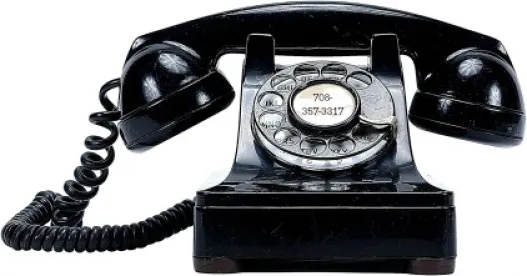On August 11, 2016, the FCC released a Report and Order implementing Section 301 of the Bipartisan Budget Act of 2015 (the “Budget Act”), which exempts autodialed and prerecorded calls “made solely to collect a debt owed to or guaranteed by the United States” from the TCPA’s prior express consent requirement. The Budget Act provision also authorizes the FCC to adopt rules to “restrict or limit the number and duration” of any wireless calls made to collect debts owed to or guaranteed by the federal government.In its Report and Order, the FCC explained that, while certain debt servicing calls will fall under the exemption established in the Budget Act by Congress, the FCC will condition the use of the exemption in a number of significant ways. These include a closely-circumscribed set of callers who may take advantage of the exemption, a strict cap of no more than three privileged calls within a thirty-day period, and several measures designed to ensure that consumers are able to opt out of receiving such calls. See ¶¶ 1-9. The FCC further explained its implementing rules as acting to:
-
Permit calls made by debt collectors when the loan is in delinquency, and by debt servicers following a specific, time-sensitive event affecting the amount or timing of payment due, and in the 30 days preceding such an event.
-
Determine that consumers have a right to stop the autodialed, artificial-voice, and prerecorded-voice servicing and collection calls regarding a federal debt to wireless numbers at any point the consumer wishes.
-
Specify that covered calls may be made by the owner of the debt or its contractor, to: (1) the wireless telephone number the debtor provided at the time the debt was incurred; (2) a phone number subsequently provided by the debtor to the owner of the debt or its contractor; and (3) a wireless telephone number the owner of the debt or its contractor has obtained from an independent source, provided that the number actually is the debtor’s telephone number. ¶ 10.
In the Report and Order, the FCC stated that these new rule-based limitations reflect the agency’s belief that Congress intended the TCPA portions of the Budget Act to accomplish two primary objectives, namely to: “(1) make it easier for owners of debts owed to or guaranteed by the United States and their contractors to make calls to collect the debts; and (2) make it easier for consumers to obtain useful information about debt repayment, which may be conveyed in these calls.” ¶ 5.
The FCC then reviewed the rulemaking record of public comments received. The FCC noted that staff of the Federal Trade Commission (“FTC”) weighed in with comments reporting, among other things, that the Budget Act exemption could make it “more challenging for consumers to distinguish between legitimate debt collection calls and calls placed by scammers impersonating the government.” ¶ 7. Further, the FCC cited a Department of Treasury Fiscal Year 2015 report concluding that “the federal Government had $1.3 trillion of non-tax receivables (current and delinquent), of which $162.1 billion was delinquent.” ¶ 8.
Next, the FCC turned to the level of public participation in the rulemaking proceeding, observing that over 15,700 individuals filed comments, along with comments by Consumer’s Union and Americans for Financial Reform, comments that urged the FCC to limit the scope of the Budget Act exemption. ¶ 9. However, the FCC noted that other commenters “emphasized the important need served by such calls, i.e., that they can help educate debtors, often younger individuals, about repayment options that can save them from substantial debt from which they may not recover.” Id.
The Report and Order defines several key terms in the Budget Act exemption. First, the FCC clarified that it considers the term “solely to collect a debt” to be time-limited to include only (a) debts that are presently delinquent at the time of the call, and (b) “debts that are at imminent risk of delinquency as a result of the terms or operation of the loan program itself.” ¶ 14. While some commenters objected to the propriety of any FCC decision to adopt a time limitation in the Budget Act language, the FCC concluded that the exemption must be time-limited because otherwise “the risk of delinquency would be too speculative and too far removed (i.e., not imminent) from an event affecting the amount or timing of payments due.” ¶ 15. Specifically, the FCC determined that “no debt servicing calls will be permitted except those regarding an approaching deadline or a change in status (deferment, forbearance, rehabilitation), calls regarding enrollment or reenrollment in income-driven or income-based repayment plans, and calls regarding similar time-sensitive events or deadlines affecting the amount or timing of payments due.” ¶ 18.
Next, the FCC discussed the meaning of the phrase “owed to or guaranteed by the United States.” The FCC took care to avoid limiting the type of arrangements constituting a “debt,” but concluded that the definitions applicable to specific federal lending programs, along with relevant agency or judicial pronouncements on the matter, will be “highly relevant,” though not dispositive, evidence regarding whether a consumer’s participation in any given program constitutes a “debt owed to or guaranteed by the United States.” ¶ 19. The FCC explained, however, that the debt must be currently owed to or guaranteed by the federal government; debts that have been satisfied or sold in their entirety do not qualify for the Budget Act exemption. ¶ 20.
The FCC also stated that the limitation to calls “solely to collect a debt” requires that the calls be placed to the debtor only. ¶ 21-22. The FCC next emphasized that calls to wrong numbers are not covered by the Budget Act exemption, even if the caller’s intent is to collect on a federally-held debt. ¶ 25-26. This raises yet again the unresolved challenge of avoidance of reassigned numbers.
Finally, the FCC clarified that the only parties able to take advantage of the exemption will be the owner of the debt and its contractors. The FCC specifically declined to extend the exemption to all subcontractors (though the exemption may apply if the subcontractor is an agent of the debt owner). ¶ 27. The FCC also emphasized that the calls may not contain extraneous content, but must be solely to collect a debt. ¶ 29.
Having defined the nature of the calls that will be covered by the exemption, the FCC then turned to the limitations to be imposed on the calls themselves. See ¶¶ 30-49. The FCC found that, unlike the Budget Act language authorizing the debt-call exemption, the language authorizing the agency to promulgate rules relating to calls placed for the collection of debt is not limited to calls placed solely for that purpose. To the contrary, FCC noted that the Budget Act enables it to “restrict or limit the number and duration of calls made to a cellular telephone number to collect a debt owed to or guaranteed by the United States.” ¶ 31. Accordingly, the FCC explained that “the rules we promulgate under this authority apply to any autodialed, prerecorded-voice, and artificial-voice calls that reasonably relate to the collection of a covered debt and therefore apply even if the calls are not ‘calls made solely to collect a debt.’” Id.
The FCC then discussed the content of the rules it promulgated. Specifically, it determined that calls under the exemption would be limited to a total of three, after which the standard prior express consent rules will apply to any further debt collection calls. ¶¶ 33-37. The FCC rejected the U.S. Department of Education’s argument that a limit as low as three calls per month would likely prove insufficient to achieve the purposes of the Budget Act TCPA amendments, determining instead that there was no objective reason to set a higher limit than the three-call allowance the FCC initially proposed in its NPRM. Id. The FCC stated that if other federal agencies desire to make more calls under the exemption, they could seek a waiver of the TCPA rules. Id.
The FCC also reasoned that it had the authority to require callers using the exemption to cease placing calls to a debtor once the debtor requests that the calls cease. ¶ 38. According to the FCC, the Budget Act authorizes the FCC to pass rules limiting the number of calls to be placed under the exemption, and a requirement that callers cease contacting debtors on request is effectively just another limit on calls to be placed. Further, the FCC required callers to make the opt-out right known to debtors. ¶ 40. According to the FCC:
Disclosures must be made in a manner that gives debtors an effective opportunity to stop future calls. Callers must disclose this consumer right within every completed autodialed call with a live caller, whether the callers peaks with the debtor or leaves a voicemail message. Id.
Moreover, the FCC extended its “any reasonable manner” approach to opt-out requests in the Budget Act exemption context:
The Commission has previously determined that consumers may opt out of calls for which prior consent is required, and that they may do so using any reasonable method, including orally or in response to a text message. Here, where the federal debt collection calls do not require consent, but where consumers may request at any time that calls stop, consumers may also make a stop-calling request using any reasonable method, including orally or in response to a text message. ¶ 41.
Next, the FCC imposed a 60 second maximum duration on prerecorded calls, exclusive of any required disclosures contained in the message. ¶¶ 45-47. It also imposed a one-text message limit (exclusive of required disclosures) for debt holders choosing to place their calls via text. Id. Additionally, the FCC confined the calls to the familiar 8:00 a.m. to 9:00 p.m. timeframe for telemarketing calls. ¶ 42. Finally, the FCC concluded that, although the Budget Act exempts covered calls from the TCPA’s prior express consent requirement, the calls must nevertheless comply with TCPA rules in other respects. ¶ 56.
Chairman Wheeler and Commissioner Clyburn each issued statements emphasizing the consumer protections reflected in the Report and Order. Commissioner Rosenworcel issued a concurring statement that lamented the apparent inconsistencies between the exemption established for federal contractors in in the Report and Order and the Commission’s earlier finding in its Broadnet Declaratory Ruling that federal contractors are not regulated “persons” under the TCPA. Rosenworcel argued that the Report and Order also muddied the waters after the Supreme Court’s Campbell-Ewald v. Gomez decision in which the Court determined that no derivative immunity exists for government contractors acting outside the scope of their authority. Commissioner Pai issued a dissenting statement expressing related concerns and contending that the FCC should instead reverse its finding in the Broadnet Declaratory Ruling that federal contractors are not regulated “persons” under the TCPA. By contrast, Commissioner O’Reilly issued a dissenting statement arguing that the FCC should simply have concluded that, under Broadnet, the TCPA does not apply to federal contractors placing debt collection calls because federal contractors are not persons. As a result, O’Reilly reasoned that the FCC’s detailed limitations and restrictions on the Budget Act exemption are improper.





 />i
/>i

